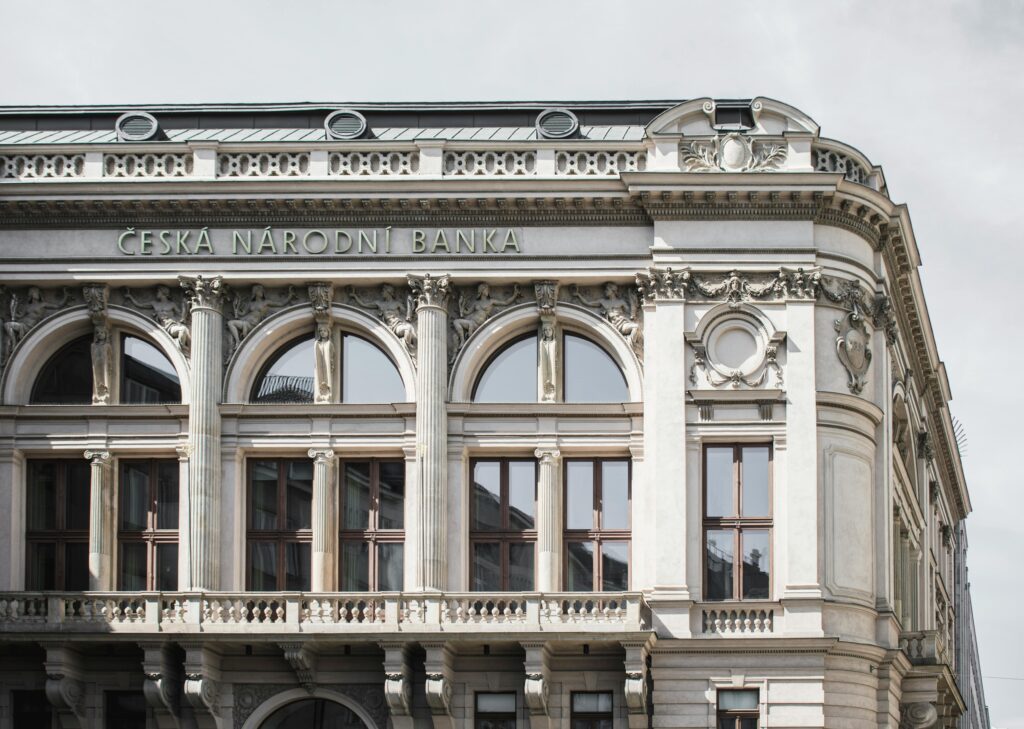In a potential game-changing move for Europe’s financial system, Aleš Michl, the governor of the Czech National Bank (ČNB), has proposed adding Bitcoin to the country’s central bank reserves.
If approved, this would mark a historic shift in the way European central banks approach digital assets.
Michl revealed in an interview with the Financial Times that he plans to present his proposal to the ČNB’s board of directors this Thursday. Under his plan, the central bank could allocate up to 5% of its total reserves to Bitcoin, a bold diversification strategy that could influence other institutions.
With the Czech National Bank managing approximately €140 billion in assets, this would translate to a potential €7 billion investment in Bitcoin—an unprecedented move for a European central bank.
Why Bitcoin? Michl’s Vision for Diversification
As a former fund manager, Michl has consistently advocated for investment strategies that enhance returns while managing risk. Bitcoin, despite its volatility, has demonstrated strong long-term price appreciation, making it an attractive option in a diversified portfolio.
Michl has previously hinted at his interest in Bitcoin. In an earlier interview with CNN, he suggested that a small portion of the ČNB’s reserves could be allocated to the digital asset. However, he stressed that he would need support from the seven-member board before moving forward.
He also believes that Donald Trump’s return to the U.S. presidency could be an additional catalyst for Bitcoin’s growth. “Trump could create a bubble around Bitcoin, but even without him, the price will rise in the long run,” Michl stated. “Bitcoin is simply an alternative investment vehicle that helps with portfolio diversification.”
At the same time, he acknowledges the risks:
“Bitcoin could also become worthless. But that’s not a reason to ignore it. We’ve had to write off investments in companies like Enron and Wirecard in the past.”
Currently, 22% of the ČNB’s reserves are invested in stocks. According to Michl, if the bank had allocated 5% to Bitcoin over the past decade, it could have boosted its annual returns by 3–5%, though volatility would have increased as well.
European Central Bank: “Bitcoin is Worthless”
Michl’s proposal stands in stark contrast to the European Central Bank (ECB), which remains highly skeptical of Bitcoin. The ECB has repeatedly warned against the risks of cryptocurrencies, arguing that they lack fundamental value and are prone to speculation.
Joachim Nagel, president of the German Bundesbank, recently compared Bitcoin to the 17th-century Dutch tulip mania, a classic economic bubble that ended in a crash. The ECB’s official stance remains that Bitcoin is not a legitimate financial asset.
However, despite the ECB’s skepticism, interest in digital assets continues to grow worldwide. While no major European central bank has invested in Bitcoin yet, El Salvador has already made Bitcoin a national reserve asset, setting a precedent for other nations to follow.
Could This Spark a Domino Effect in Europe?
If the Czech National Bank follows through on its Bitcoin investment, it would set a powerful precedent within the European financial system. A move of this scale could encourage other central banks to reconsider their stance on digital assets.
Michl believes that once one Western central bank makes the leap, others may follow suit. The coming months will be crucial in determining whether he can convince the ČNB’s board or whether the ECB’s cautious approach will continue to dominate Europe’s monetary policy.
One thing is certain: if a Western central bank officially adds Bitcoin to its reserves, it could redefine the role of cryptocurrencies in the global financial system.
Read our free bitcoin guide.



